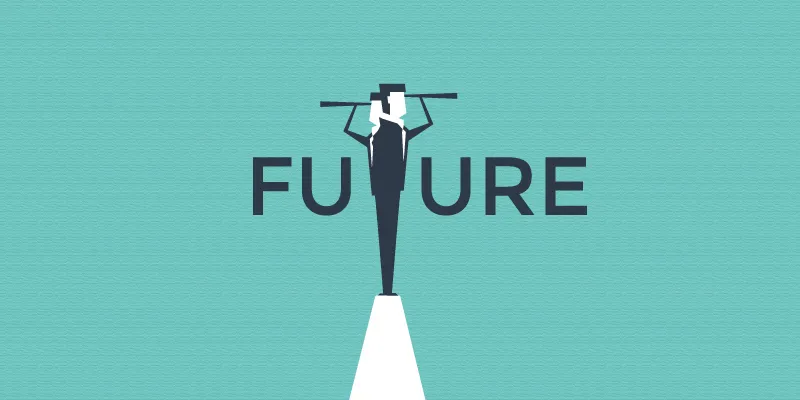Preparing for change – 4 tips for future-proofing your startup
The most obvious question first – what is future-proofing? As per The Next Web, “Future-proofing is the act of ensuring that no matter what changes occur in your industry, the marketplace at large, and with your customer’s evolving needs, you’ve put measures in place to reduce the negative impact of these changes on your organization.”
Future-roofing therefore is first a mental concept, and only later a matter of labour, effort, and time. The business world is a roller-coaster ride and has been so for ages. Yet change has shaped and chiseled it into what it has become today. It doesn’t matter whether you’ve been in business forever or are just starting out; unexpected changes – owing to new policies, reforms, and laws – can set you adrift if you do not anticipate the tsunamis and hurricanes that will be your companions on a near-consistent basis throughout the life of your start-up.

Image: Shutterstock
Here are five ways which – when followed and observed with keenness and acuity – will ensure that an uncertain future does not taint your prospects or add to your stress levels as individuals and as an organisation.
Be open
Openness is another name for flexibility. It shows that you are not only aware of the unpleasant surprises that’ll greet you in your entrepreneurial journey, but are prepared for them too. Sure, the kind of change that the future will bring will not always be something that you expected, but the fact that you anticipated the tide to turn and any form of change to set in will keep you in a mentally superior position compared to those who never plan, or worse, do not ‘believe’ that things will change.
Become a company of ‘more’
According to Mashable, “We live in a service economy in which companies have transcended selling products; they're now selling experiences. Think about how you can add value to your customers and help them achieve their desired outcome through the holistic experience you provide.”
One of the best ways to stay afloat during a flood of crisis is to be prepared by keeping a platter of services stocked up for later use. These could be in the form of ideas or presentations which can be put into effect whenever the need arises for your organisation to provide more than the usual to customers. This will solve two problems:
- You’ll be able to keep your workforce busy during a crisis and hence refrain them from engaging in fear and gossip
- Secondly, it’ll ensure that your customers don’t forfeit their trust in you
Build organic technologies
According to Darren Guarnaccia, EVP, Customer Experience at Sitecore, “Your technology should always be able to evolve along with your customers and their needs.”
Good technology remains fundamentally the same, while at the same time allowing several factions or versions of changes to take place on top of it. However, if your technological aspirations have led you to create products that are time- and purpose-bound, you’ll surely suffer for your myopic vision. Take Windows for example. It’s been decades since it was first launched, but has it disappeared from the public view or use? No. Is it the same when it was first launched? No. Windows kept the window of transformation open and has been able to penetrate the pages of history books while defining the future at the same time.
Build a culture that is open to changes
According to social media consultant Brian Honigman, “Your colleagues must be aligned with the company’s drive to future-proof its marketing efforts, otherwise things will falter quickly. Most importantly, is your team comfortable with constant change? Are they questioning your processes and strategy to improve them? Do they understand what’s happening outside of the company and its impact?”
The success of an organisation is directly related to the success of its employees. Therefore, it’s of utmost importance for employers to build a workforce that is in line with the vision of the company. As a part of realizing this vision, it’s the responsibility of the employer to inform their hires of the changes that they may have to face in the future, right from the start. Once the employer manages to win the trust of their hires, they will be able to steer their corporate vessel away from any form of unrest.
Change is a continuous and ever-evolving process. While it is impossible to anticipate every change you might face in the future, keeping yourself prepared will help you avoid nasty shocks and surprises. Keep these four points in mind, and you should be able to handle any curveballs life throws at you.
Read Also: 3 (often overlooked) factors critical to your future







